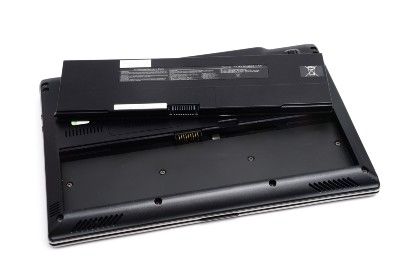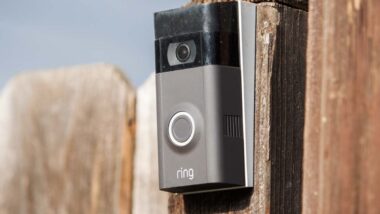Top Class Actions’s website and social media posts use affiliate links. If you make a purchase using such links, we may receive a commission, but it will not result in any additional charges to you. Please review our Affiliate Link Disclosure for more information.
A California appeals court has decided Amazon should be held responsible for an exploded laptop battery, in contrast to the trial court’s earlier decision that a third-party seller, not Amazon, should be held responsible.
Now, Amazon wants to continue to fight back in the lawsuit.
A three-judge panel made the decision in the Amazon products defect lawsuit Thursday, saying that because Amazon played an active role in the sale of the battery, the online retailer should be held liable.
According to the judges, the customer who was allegedly injured by the battery would not have accessed it if it weren’t for Amazon.
Amazon has already protested this ruling, and has vowed to appeal the decision.
The company has argued the judges’ decision in the laptop battery defect lawsuit goes against well-established legal standards.
Amazon asserts the Communications Decency Act protects online platforms from being held liable for products and content on their sites.
The Amazon products lawsuit was brought by Angela Bolger, who says she purchased a laptop battery off Amazon that was sold through Lenoge Technology LTD under the name “E-Life.”
In her complaint, Bolger recounts how a few months after she purchased the battery, she suffered serious burns. She had aimed to hold both Lenoge and Amazon liable for her injury, saying they both played a role in the issue.
According to court documents, Lenoge “was served but did not appear,” and a summary judgment was entered for Amazon.
On the issue of Amazon’s alleged liability, a trial court found Amazon should not be held liable because it was merely an “online marketplace” and not the true seller of the item.
However, this decision did not mark the end of the Amazon/Lenoge battery explosion lawsuit.
The appeals court took the opposite opinion of that held by the trial court, saying Amazon should be held liable as much as a brick-and-mortar store could be held liable in such an instance.
The appeals court zeroed in on the nature of Amazon’s involvement, saying that were it not for Amazon’s participation in the sale of the battery, Bolger would not have been able to purchase her laptop battery.
According to the judges, Amazon stored the product from Lenoge in its own warehouses, and from there, shipped the item.
The panel also noted Amazon dictated the terms of Lenoge’s use of the Amazon site, forbidding the company from contacting consumers but through the Amazon site.
Reportedly, the Amazon policy for third-party sellers is that they must sign a contract to sell on the site, and Amazon takes a cut of what they earn.
The panel was not convinced Amazon was not a seller, saying: “Whatever term we use to describe Amazon’s role, be it ‘retailer,’ ‘distributor,’ or merely ‘facilitator, it was pivotal in bringing the product here to the consumer.”
The judges also noted Amazon benefited from the transactions with Lenoge, saying it was only for its own profit that Amazon chose to participate in the transaction with Lenoge and its consumers.
The judges stressed that “it made these choices for its own commercial purposes. It should share in the consequence.”
The judges elaborated: “Nothing aside from Amazon’s own choices required it to allow Lenoge to offer its products for sale, to store Lenoge’s product at its warehouse, to accept Bolger’s order, or to ship the the product to her.”
According to CNBC, the consequences of this ruling will be profound, to both consumers and the public.
Previously, Amazon has been able to dodge liability in similar cases by saying it is not a seller.
CNBC points to a 2018 lawsuit filed by a customer who says that they purchased a defective hoverboard sold by a third-party seller through Amazon.
According to the customer, the hoverboard exploded, which caused their Tennessee home to burn down.
Now, as Amazon is still battling other liability lawsuits, consumers may have this laptop battery liability lawsuit decision in their corner.
Have you ever purchased a defective product? How did you respond? Share your experience in the comments below.
Bolger is represented by Jeremy Robinson, Thomas D. Luneau and Jillian F. Hayes of Casey Gerry Schenk Francavilla Blatt & Penfield LLP.
The Amazon Laptop Battery Defect Lawsuit is Angela Bolger v. Amazon.com LLC, Case No. D075738, in the California Court of Appeal, Fourth Appellate District.
Read About More Class Action Lawsuits & Class Action Settlements:
Amazon Class Action Lawsuit Says Biometric Data Wrongfully Collected
Retailers Continue to Promote Questionable Antiviral Supplements on Amazon
Report: Plaintiffs Unhappy With Roundup Cancer Settlement Proposal
New York Roman Catholic Church Sex Abuse Lawsuit Investigation
ATTORNEY ADVERTISING
Top Class Actions is a Proud Member of the American Bar Association
LEGAL INFORMATION IS NOT LEGAL ADVICE
Top Class Actions Legal Statement
©2008 – 2024 Top Class Actions® LLC
Various Trademarks held by their respective owners
This website is not intended for viewing or usage by European Union citizens.

















23 thoughts onAppeals Court Says Amazon Is Liable For Seller’s Exploded Laptop Battery
Please add me
Add Me
Please add me to the Amazon laptop battery
Not Good
Add me, please.
Please add me
Please add me.
Anker battery packs can also explode too sold on amazon add that your list of batteries.
add me
Add me
Please add me
Add me